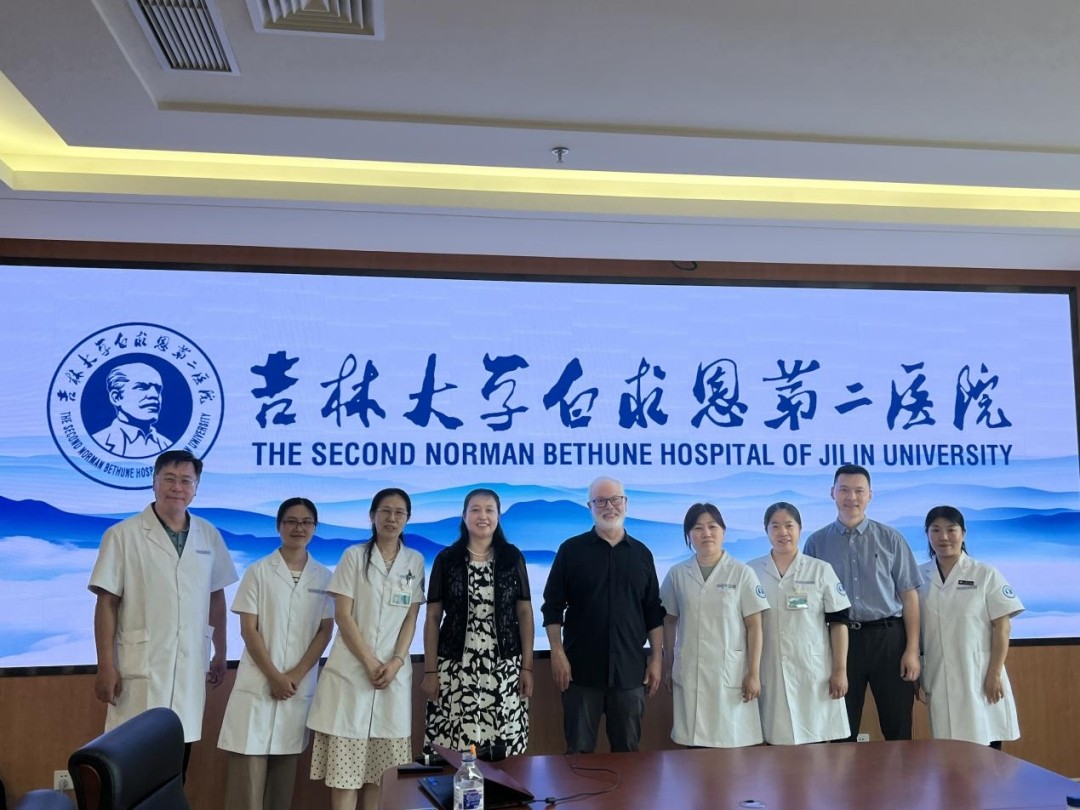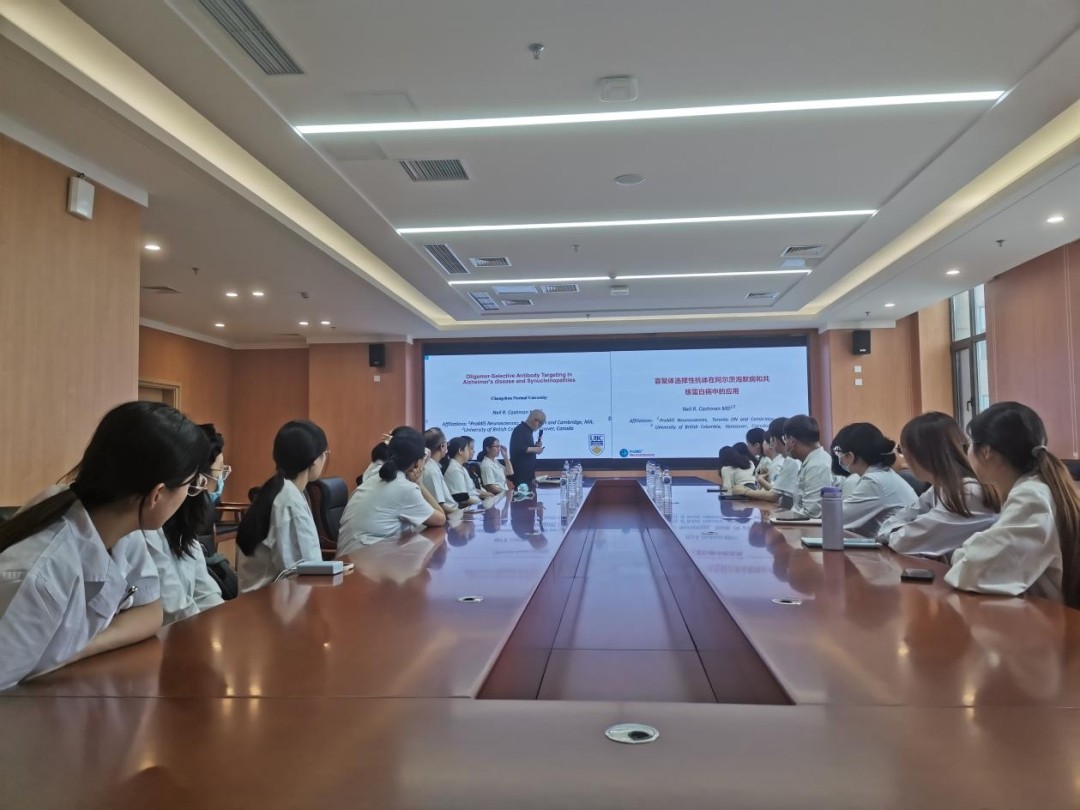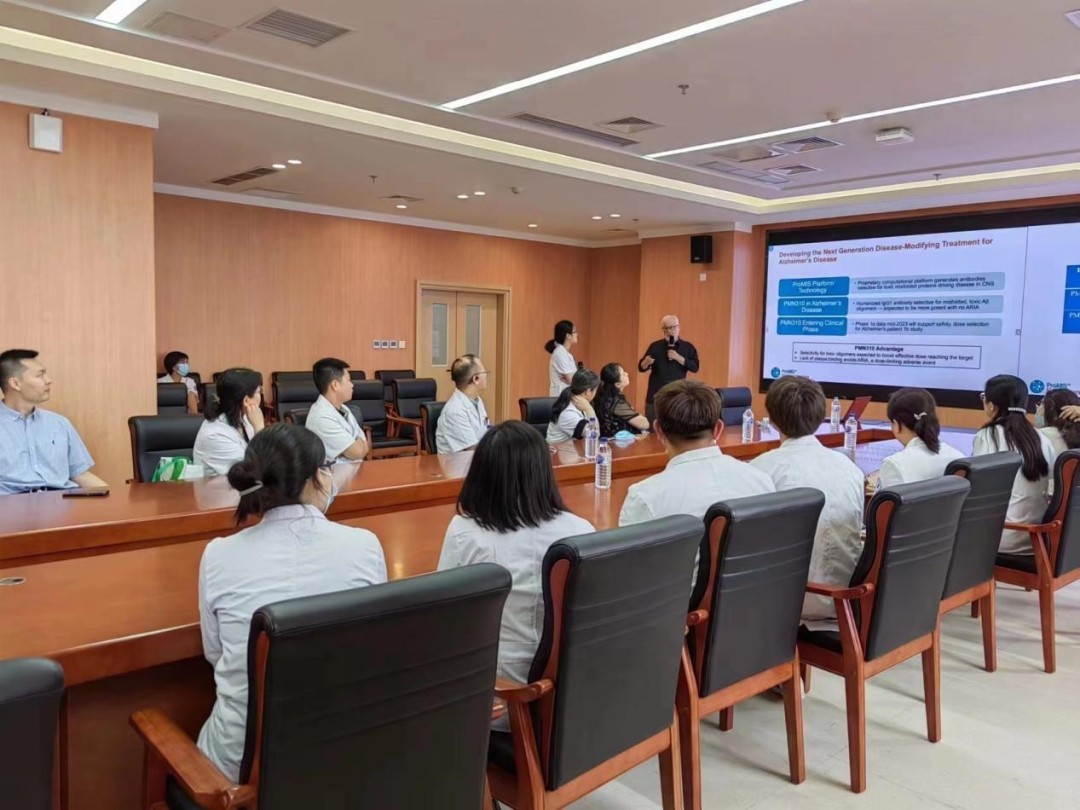On July 11, Professor Neil R. Cashman was invited by the Department of Neurology of our hospital to visit The Second Norman Bethune Hospital of Jilin University. He delivered a specialized academic lecture titled "Oligomer-Selective Antibody Targeting in Alzheimer's Disease and Synucleinopathies" in the Second Conference Room of the Yatai Campus of our hospital. The event was attended by Vice President Yang Wei, Director Qu Wenrui of the Discipline Construction Office, Director Fan Jia of the Department of Neurology, as well as faculty members and students from the hospital.

Professor Neil R. Cashman is a Fellow of the Royal College of Physicians and Surgeons of Canada, a Fellow of the Canadian Academy of Health Sciences, and an Emeritus Professor of Neurology and Neuroscience at the University of British Columbia. He primarily focuses on research in neurodegenerative diseases and has published over 350 research papers in international academic journals, with his work cited more than 20,000 times (Google Scholar metrics). He has also been granted more than 30 patents.
Prior to the event, Professor Neil R. Cashman visited the neurology wards and outpatient clinic at the Yatai Campus of our hospital. He highly praised the environment of the new campus and our hospital’s comprehensive medical service system.


Professor Neil R. Cashman's lecture primarily shared his recent explorations into therapeutic drugs for Alzheimer's disease, covering the transition from basic research to clinical applications. He introduced the use of a novel oligomer-selective antibody in the treatment of Alzheimer's disease and synucleinopathies. The presentation provided a detailed overview of several aspects, including the pathogenesis of Alzheimer's disease, the advantages and disadvantages of some existing novel drugs for the condition, the selection and preparation of the PMN310 antibody, the promising results of the PMN310 antibody in animal experiments, and the upcoming Phase Ia clinical trial design. The talk attracted numerous faculty and students from the Second Hospital, who engaged in extensive exchanges and interactions with Professor Cashman. After the lecture, Professor Cashman also held professional discussions with physicians from the Department of Neurology.